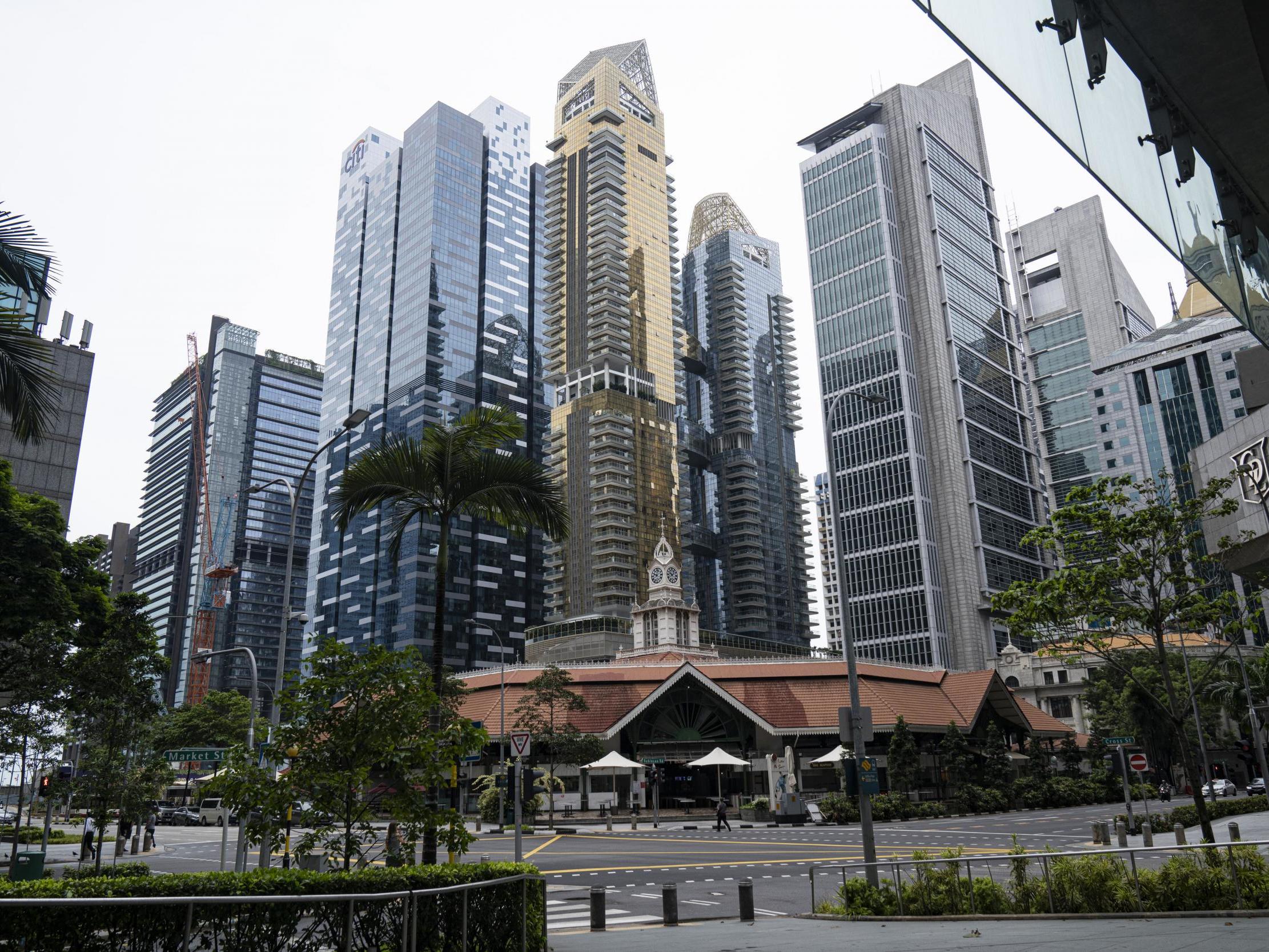Singapore’s post-lockdown coronavirus surge sparks fears of new breakouts
The international financial centre announced 142 new cases on Wednesday
Your support helps us to tell the story
From reproductive rights to climate change to Big Tech, The Independent is on the ground when the story is developing. Whether it's investigating the financials of Elon Musk's pro-Trump PAC or producing our latest documentary, 'The A Word', which shines a light on the American women fighting for reproductive rights, we know how important it is to parse out the facts from the messaging.
At such a critical moment in US history, we need reporters on the ground. Your donation allows us to keep sending journalists to speak to both sides of the story.
The Independent is trusted by Americans across the entire political spectrum. And unlike many other quality news outlets, we choose not to lock Americans out of our reporting and analysis with paywalls. We believe quality journalism should be available to everyone, paid for by those who can afford it.
Your support makes all the difference.A sharp rise in new infections in Singapore has led to fresh concerns over the potential for the coronavirus to surge again once lockdown measures have been eased.
Following the initial outbreak in China, Singapore was hit hard by Covid-19, but was widely applauded for quickly stemming the spread of the virus through strict surveillance and quarantine.
But Singapore confirmed 142 new cases on Wednesday – a record for a single day in the country – with a seventh fatality also reported.
The increase, as of Thursday morning, takes the total number of cases in the country to 1,623, according to Johns Hopkins University.
Gan Kim Yong, minister of health, admitted: “The trend is particularly concerning in the past week.”
The new wave of cases in the international financial centre, many with no links to confirmed cases, has been attributed to foreign workers.
Singapore has come under fire after it was reported that it was putting 20,000 migrant workers under quarantine in two dormitories, designated as “isolation areas”.
“The fact that thousands are now under quarantine in extremely close proximity could be a recipe for disaster, unless their basic rights are respected,” Rachel Chhoa-Howard, Amnesty International’s Singapore Researcher, said.
The rise in new infections will come as a concern to Austria, Czech Republic and Denmark as the first European countries set to relax lockdown measures.
Singapore has quickly moved to tackle the increase in locally transmitted infections by passing a bill to prohibit social gatherings of any size in public or private spaces with individuals who do not live inside the same household.
Those who fail to adhere could be handed a fine of up to S$10,000 (£5,650) and/or a jail sentence up to six months, while the punishment for repeat offenders will be doubled.
The example of Singapore illustrates the difficulty globally as countries weigh up the logistics surrounding the desire to ease lockdown measures in order to help economic recovery without risking further major outbreaks.
Italian prime minister Giuseppe Conte said on Thursday that the country was moving closer to relaxing measures.

“The curve is starting to decline and stabilise and the number of infections is decreasing,” Conte told the BBC. “So probably, if scientists confirm it, we will relax some measures by the end of this month.”
While a Spanish government spokesperson revealed on Wednesday the prospect of also reducing measures by the end of the month, before a colleague rejected that possibility, emphasising the country remained in a “difficult phase”.

Join our commenting forum
Join thought-provoking conversations, follow other Independent readers and see their replies
Comments